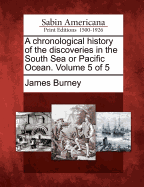Pronunciation key ( pə-sif′ik ) |
Pa•cif•ic
n.
[OFr. pacifique < L. pacificus : pax peace + facere to make < pacificare; see PACIFY].
- Called Pacific by Magellan because of the ocean's tranquil appearance.
- Largest from among the earth's ocean and is located between Asia and the American continents with an area of 63,750,000 square miles.
adj.
- Pertaining to (of, in, on or near) the Pacific Ocean.
- Relating to location in relation with (on, along or near) the Pacific Ocean.
- To make or tending to make peace; serene; appeasing; conciliatory.
- Of a peaceful disposition or nature. Tending to put an end to conflict. In opposition to being warlike; mild, temperate; tranquil; calm.
Also pa•cif•i•cal (-i-kəl) adj. —pa•cif′i•cal•ly adv.
 
|
Exploration and Discovery of the Pacific
In the 1600's many European explorers were already familiar with the Atlantic but the Pacific remained largely unknown. The Dutch navigator Willem Jansz became the first European known to reach the shores of Australia in 1606, sailing there from Indonesia and exploring the eastern shore of Gulf of Carpentaria. The Dutch seaman Abel Janszoon Tasman was the first European to reach Tasmania and New Zealand in 1642.
A captain of the British Navy, James Cook undertook three voyages during the 1760's and 1770's making him the most prominent among explorers of the Pacific Ocean. Cook searched for a continent that was believed by geographers to lay south of Australia.
During the first voyage, 1768-1771 Cook visited New Zealand and several other islands in the South Pacific which were at that time unknown to Europe. The second voyage (1772-1775) he traveled farther south than any European had ever journeyed, sailing into frigid Antarctic waters, and carefully navigating around icebergs which were obscured by fog. Dense ice prevented him from getting close enough to make an actual sighting of the continent of Antarctica.
Cook sailed for the northwest coast of North America in 1776 in search of a western route to the long sought after Northwest Passage. During that voyage, he became the first European to make a visit to the Hawaiian islands. Cook sailed onward along the western coastline of Canada, entering the Arctic Ocean. Ice blocked his path and he thus turned back to Hawaii. While there, in 1779, Cook was killed during a battle.

No comments:
Post a Comment